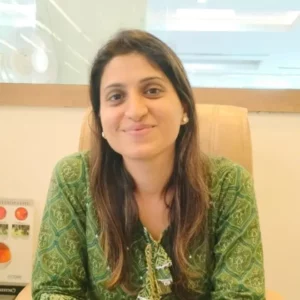Are you struggling with Keratoconus, a condition that’s affecting your vision and daily life? If so, you’re not alone. The blurriness, distorted vision, and discomfort caused by Keratoconus can be quite frustrating. But don’t worry, help is at hand. In this blog, we’ll introduce you to a list of the best doctors for Keratoconus surgery in Delhi, including the top expert, Dr. Shweta Jain, who’s making a significant impact in the field. We’ll guide you through the options available and provide insights on how to choose the right doctor for your Keratoconus treatment. Let’s start your journey towards clearer and healthier vision.
Contents
Understanding Keratoconus: A Sneak Peek
Keratoconus is an eye condition that affects the cornea, the clear, dome-shaped front surface of the eye. In a healthy eye, the cornea maintains its round shape. However, with Keratoconus, the cornea weakens and gradually becomes more cone-shaped. This structural change in the cornea leads to various visual problems.
What Keratoconus Looks Like:
- Cone-shaped cornea
- Blurred or distorted vision
- Increased sensitivity to light
- Frequent changes in eyeglass or contact lens prescriptions
- Halos and ghosting around lights
- Eye irritation and swelling
How Keratoconus Affects Vision:
Keratoconus makes the cornea thinner and weaker, leading to a bulging and irregular shape. As the cornea loses its roundness, it causes significant vision disturbances, such as distorted and blurred vision. This condition often progresses over time, making it difficult for individuals to carry out daily activities effectively.
Available Surgical Options for Keratoconus
- ICL (Implantable Collamer Lens):
- ICL is an implantable lens that is inserted between the eye’s natural lens and the iris.
- It helps to correct vision and improve visual quality for patients with Keratoconus.
- C3R (Corneal Collagen Cross-Linking with Riboflavin):
- C3R is a non-invasive procedure that strengthens the cornea and can halt the progression of Keratoconus.
- It involves applying riboflavin (vitamin B2) drops to the cornea, followed by controlled ultraviolet (UVA) light exposure.
- Corneal Transplant (Penetrating Keratoplasty or PK):
- In severe cases, a corneal transplant may be necessary, replacing the patient’s damaged cornea with a healthy donor cornea.
- INTACS (Intrastromal Corneal Ring Segments):
- INTACS are small, crescent-shaped devices that are surgically placed in the cornea to help reshape it.
- They can improve vision and reduce the irregularities caused by Keratoconus.
It’s important to consult with a qualified eye specialist to determine the most suitable surgical option for your specific case of Keratoconus. The choice of treatment depends on the stage and severity of the condition, as well as individual patient factors.
Top Keratoconus Treatment Surgeons in Delhi
Keratoconus, a condition where the cornea becomes thin and conical, affecting vision, requires the care of skilled specialists. Here are some of the top Keratoconus treatment surgeons in Delhi who have made a significant mark in the field:
- Dr. Shweta Jain (Eye Mantra)
- Medical Director of Eye Mantra in Delhi
- With over a decade of experience in the field, Dr. Shweta Jain is renowned for her expertise in keratoconus and refractive surgery.
- She has successfully performed more than 1000 keratoconus surgeries, making her a top choice for patients seeking quality care.
- Dr. Shweta and the Eye Mantra team employ the latest machines and world-class facilities to transform keratoconus surgery into a safe, painless, and effective procedure.
- Throughout the process, they offer individualized attention and support to their patients, ensuring they receive the best care possible.
- Dr. Pankaj Jain
- Ophthalmologist/ Eye Surgeon with 37 years of experience
- Practices at Apollo Spectra Hospitals in Karol Bagh, Delhi
- Highly experienced, Dr. Pankaj Jain has dedicated his career to ophthalmology and eye surgery.
- Dr. Ashiwini Seth
- Ophthalmologist/ Eye Surgeon with 39 years of experience
- Practices at Apollo Spectra Hospitals in Karol Bagh, Delhi
- Completed MBBS and MS – Ophthalmology from University of Delhi.
- Offers a range of services, including Lens for Keratoconus and Vision Therapy.
- Dr. Meetu Vohra
- Ophthalmologist/ Eye Surgeon with 21 years of experience
- Practices at Vinayak Hospital in Model Town, Delhi and Max Super Speciality Hospital in Shalimar Bagh, Delhi.
- Completed MBBS and DNB – Ophthalmology from reputed institutions.
- Dr. Pankaj Varshney
- Ophthalmologist/ Eye Surgeon with 36 years of experience
- Practices at Pushpa – Govind Eye & Laser Center in Keshav Puram, Delhi, Max Super Speciality Hospital in Shalimar Bagh, Delhi, and Mata Chanan Devi Hospital in Janakpuri, Delhi.
- Completed MBBS and MS – Ophthalmology from well-known medical colleges.
Dr. Shweta Jain: A Leader in Keratoconus Treatment

When it comes to keratoconus treatment, one name stands out in Delhi—Dr. Shweta Jain. As the Medical Director of Eye Mantra, she has established herself as a renowned expert in the field of keratoconus and refractive surgery.
- Experience and Expertise: Dr. Shweta Jain, the Medical Director of Eye Mantra in Delhi, is a renowned expert in keratoconus and refractive surgery with over a decade of experience in the field.
- Impressive Track Record: Dr. Shweta has successfully performed more than 1000 keratoconus surgeries, establishing herself as a trusted and respected figure in the medical community and among her patients.
- Cutting-Edge Technology: Dr. Shweta and the Eye Mantra team utilize the latest cutting-edge machines and world-class facilities to ensure that keratoconus surgery is transformed into a safe, painless, and effective procedure.
- Individualized Care: What truly sets Dr. Shweta and her team apart is their unwavering commitment to providing individualized attention and support to each patient throughout the entire treatment process. They understand that every patient is unique, and their approach reflects this understanding.
- Top Choice for Keratoconus Treatment: Dr. Shweta Jain’s extensive experience, coupled with her reputation in the field, makes her a top choice for patients seeking the best possible care for their vision.
- Setting New Standards: With her leadership and expertise, Eye Mantra continues to set new standards in keratoconus treatment, ensuring that patients receive the attention and support they deserve on their journey to improved vision.
What Is The Right Age for Keratoconus Surgery?
Wondering about the right age for keratoconus surgery? It’s an important question that many individuals diagnosed with this condition have. To get a comprehensive understanding of the factors influencing the right age for keratoconus surgery, head over to – Are You of the Right Age for Keratoconus Surgery?
How Much Does Keratoconus Surgery Cost?
Curious about the cost of keratoconus surgery? The price of keratoconus treatments can vary, depending on factors like the medical facility and the specific procedure. Typically, a C3R (Corneal Collagen Cross-Linking with Riboflavin) surgery can add up to around Rs. 1.5 lakhs, encompassing expenses such as surgeon fees, anesthetist charges, and hospital accommodations.
However, at EyeMantra, we offer an affordable alternative, with the total cost for C3R surgery priced at just Rs. 40,000. This cost-effective option ensures that patients have access to high-quality keratoconus treatment without the burden of hefty expenses.
Conclusion
In your pursuit of good eye health, choosing the right doctor is pivotal. With the list of the best doctors for keratoconus surgery in Delhi, you have taken the first step toward a clearer vision. So, if you’re experiencing eye-related issues, don’t delay. Your vision matters, and we’re here to help. Book your free appointment now at the Best Eye Hospital in India or call us at 9711116605, because your vision is our priority.
FAQs
1. What is the success rate of keratoconus surgery?
The success rate of keratoconus surgery varies depending on the specific procedure and the patient’s individual case. Generally, corneal cross-linking (C3R) is known to be highly effective in halting the progression of keratoconus and stabilizing the cornea. Most patients experience significant improvement in their vision and are less likely to require corneal transplant surgery after C3R.
2. Can keratoconus come back after surgery?
In most cases, keratoconus does not return after undergoing keratoconus surgery. The goal of the surgery is to stabilize the cornea and halt the progression of the condition. However, it’s essential for patients to follow post-operative care instructions and attend regular follow-up appointments with their ophthalmologist to ensure the best long-term results.
3. How painful is keratoconus surgery?
Keratoconus surgery, particularly corneal cross-linking (C3R), is typically a painless procedure. Local anesthesia or numbing eye drops are used to ensure the patient’s comfort during the surgery. Some patients may experience minor discomfort or irritation in the days following the procedure, but it is generally well-tolerated.
4. Is keratoconus surgery safe?
Keratoconus surgery, such as corneal cross-linking (C3R), is considered a safe and minimally invasive procedure. It has been performed worldwide for many years with a high safety profile. However, like any medical intervention, there are potential risks and complications. Patients should discuss these with their ophthalmologist and adhere to post-operative care guidelines for the best outcomes.



